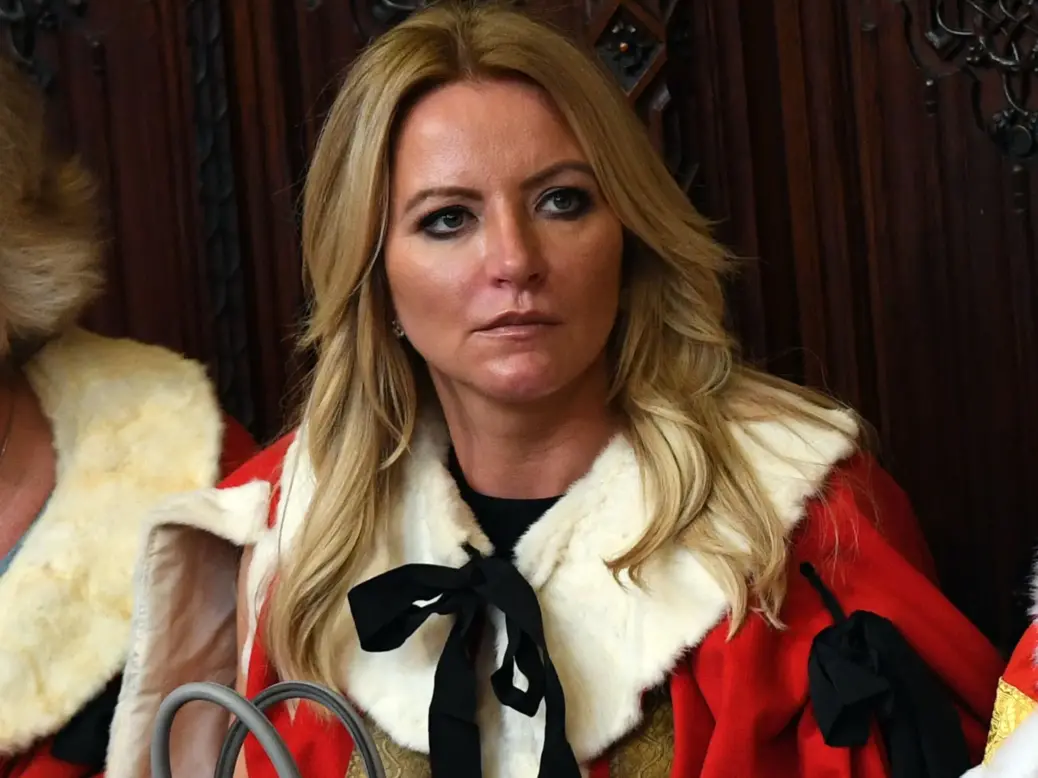
A glamorous woman poses in a swimsuit on a £7m super yacht, apparently named in her honour. She has captioned the photo herself: “Business isn’t easy. But it is rewarding.”
Today we know that her bank accounts are frozen, she is being investigated by the National Crime Agency, and is fighting a £133m legal action brought against her by the UK government. She admitted recently in a BBC interview to repeatedly lying about her connections to the business under investigation, and by extension issuing legal threats against journalists based on lies.
It is easy to see how Michelle Mone’s deployment of SLAPPs has crystallised the concept in the public imagination as oligarchs, footballers, and cheating politicians never have. For the uninitiated, SLAPP is an acronym standing for strategic lawsuits against public participation. It is a recent coinage describing an age-old phenomenon: the powerful and the wealthy using a barrage of legal process to bully journalists and thereby hide the truth.
SLAPPs threat bigger than Michelle Mone
In recent years, the danger posed by SLAPPs has been recognised as never before. In December a learned conference of KCs, broadcasters, and politicians spent three days in London’s West End debating how they can be combatted. The UK Government has recently passed legislation intended to clamp down on SLAPPs. A European Union directive on the phenomenon has recently been agreed.
Mone’s metamorphosis from plucky lingerie innovator to sleazy pandemic profiteer has made her the SLAPP poster girl. Little wonder. As a terrifying medical emergency brought the county to its knees, and chaos engulfed our government, Mone and her husband jumped on to the ‘VIP lane’ to mega profits. If it comes as a surprise to the couple that they are figures of distaste, it demonstrates how detached from reality they have become.
Allowing Mone to become the embodiment of SLAPPs poses a danger for which the venal Baroness cannot be blamed, however. Those whose thirst for lifestyle obscures their moral compass might make headlines, but there are far, far more dangerous instances of SLAPPs grinding through the British legal system. At least one has potential consequences that go far beyond private jets and tasteless mansions.
Assange case poses ‘most significant’ press freedom threat
The most significant is that of Julian Assange, whose final appeal to stay in the UK will be heard by a court in London at the end of February. So long has his incarceration dragged on, and so multitudinous are the issues that appear to surround his case, that he has faded from the public’s imagination. This is hardly surprising. His greatest revelation – the ‘collateral murder’ video – took place 17 years ago. He has not been at liberty for 12 years and has been in HMP Belmarsh for nearly five.
Nonetheless, the nub of the US demand to bring him to book is to prosecute him for activities that many journalists engage in daily. He sought out a contact who had evidence of wrongdoing; he coached that contact to discreetly pass over that information; and he encouraged his contact to seek out further evidence of criminality.
If he is prosecuted, Assange faces a jail sentence of 175 years – a bizarre and horrific prospect that tells its own story about US justice. Of far greater import than Assange’s personal welfare, however, would be the impact this would have on journalism. It would extend the reach of US law enforcement around the world, and allow Washington’s Department of Justice to pursue anyone who was handed classified information and treat them as an enemy spy.
Even the prospect of this would make many journalists think twice about accepting material from confidential sources. How big would a story have to be to risk a lifetime in jail? Indeed, even stories such as that of Baroness Mone would be less likely to come to light. Her undoing, it is believed, came about because an employee became so disgusted with her lies that they leaked information to a newspaper. Assange facing a lifetime in solitary confinement will act as a potent discouragement to whistleblowers in every realm.
The Wikileaks founder’s case begs questions of several institutions that now proclaim themselves to be opponents of SLAPPs. But what can they do?
The answers are simple. There is ample scope for the UK court to uphold Assange’s appeal against extradition to the US. Previous hearings have dismissed strong concerns raised by his legal team about the legality of the US/UK Extradition Treaty, about whether a fair trail is possible after meetings with his legal team were bugged, and over the compatibility of US justice with respect for human rights. A change of mind on any of these is possible.
There are plenty of grounds on which UK ministers could reject his extradition – not least the devastating impact his incarceration would have on free speech. And President Biden could drop the prosecution – avoiding a court case that would shine a light anew on unsavoury episodes in US military history.
Ending the farrago of Assange’s prosecution would be the single biggest step anyone could take to banishing SLAPPs from the public sphere. It would also be the most effective blow against those who try to use the law to keep their sleaze, greed and immorality from public view.
Email pged@pressgazette.co.uk to point out mistakes, provide story tips or send in a letter for publication on our "Letters Page" blog
